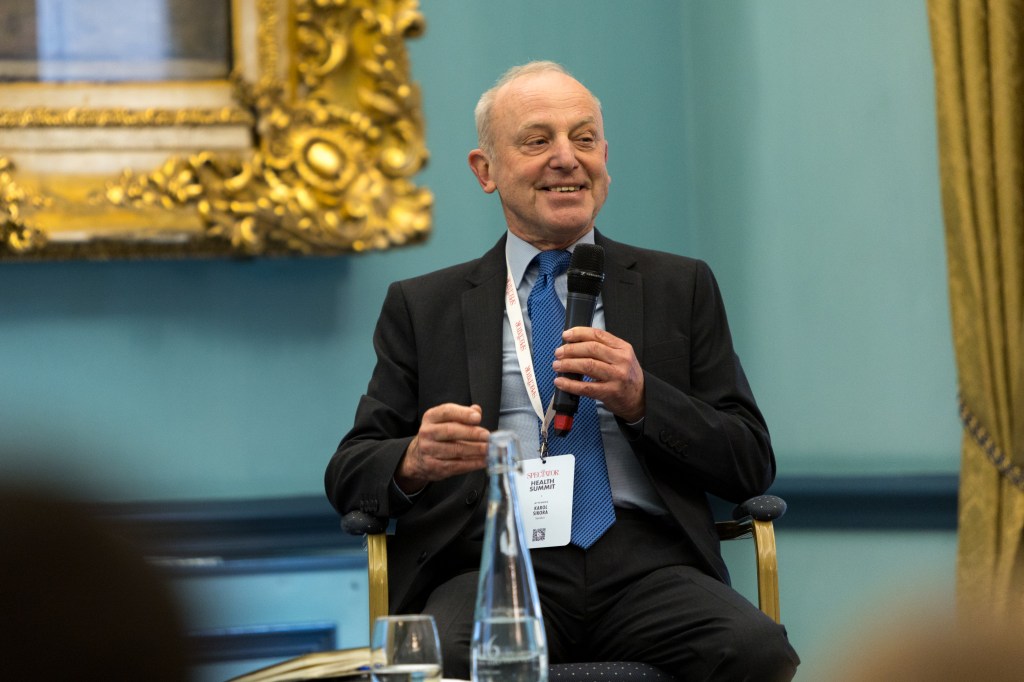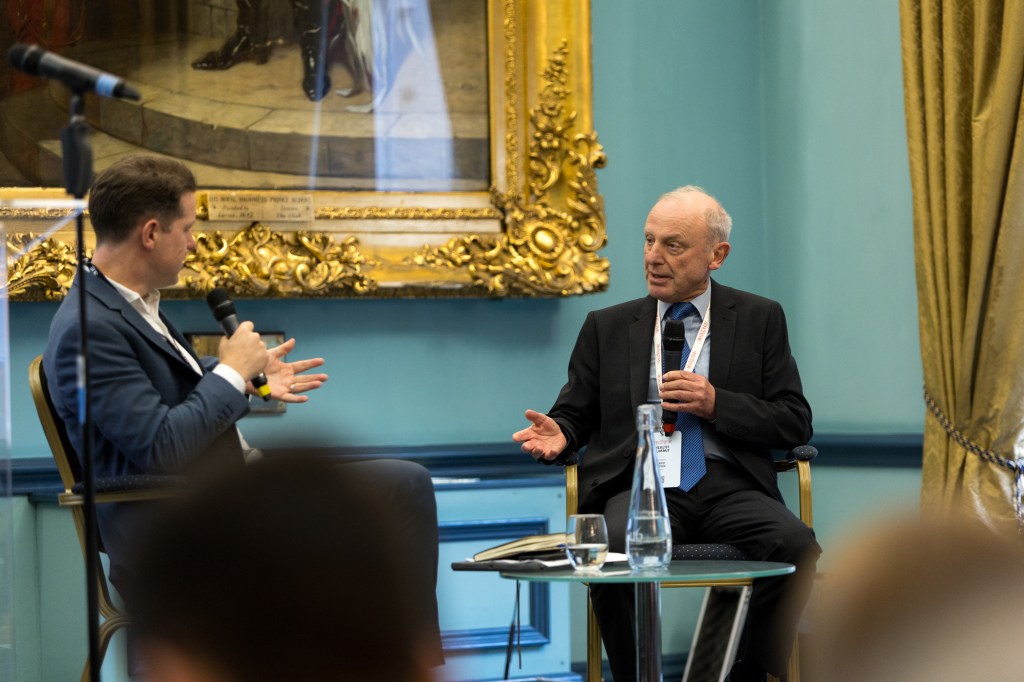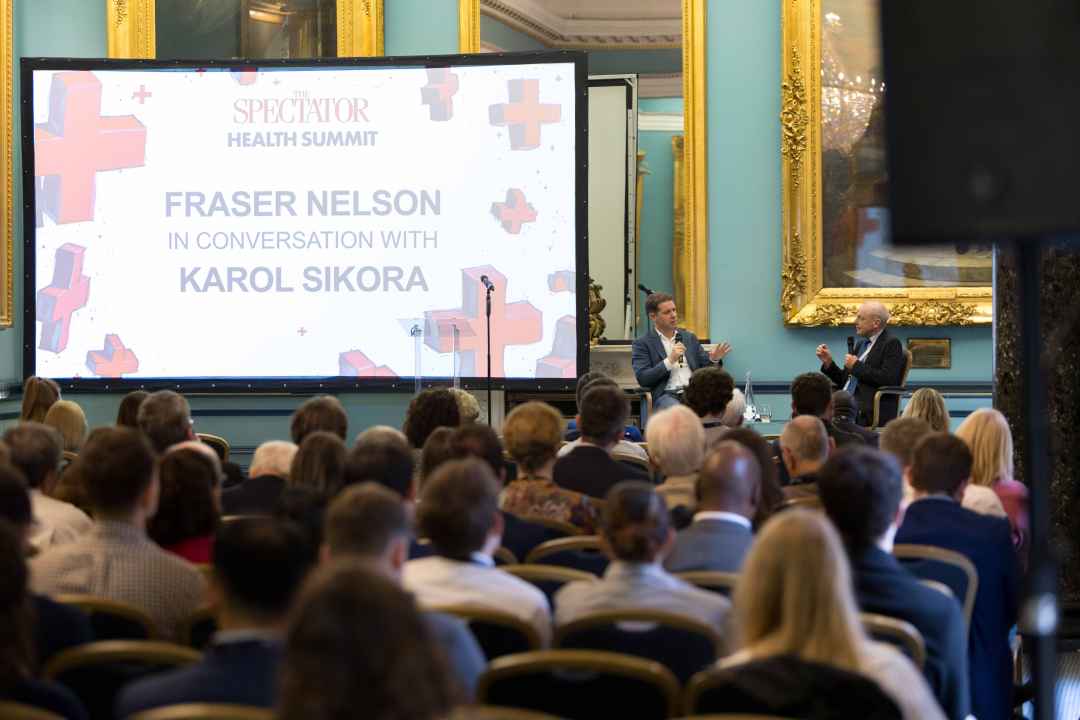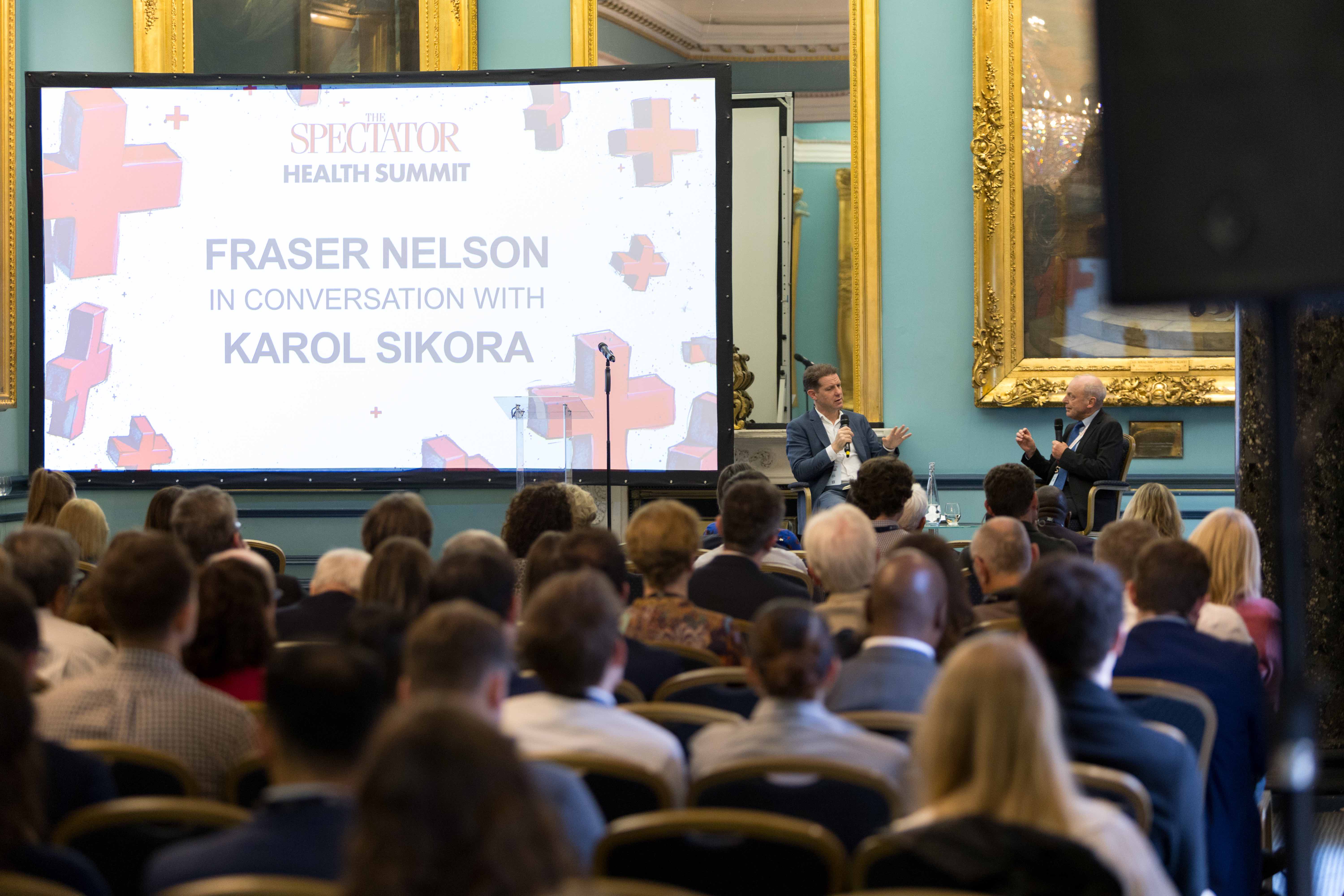Professor Karol Sikora was supposed to be a guest on a Spectator panel last year when one sponsor said they would pull their funding unless he was dropped. Instead the sponsor was dropped, Sikora stayed and today he was back again, opening The Spectator’s Health Summit with our editor Fraser Nelson.
Does it matter if the UK has world-beating cancer treatment if the structure to implement it isn’t there? Or if the UK is the sixth highest funded country in the OECD if it’s one of the worst countries for patient outcomes? The organisational problems in our health service, Professor Sikora says, are worsening its performance. The senior oncologist began by listing off failures: ‘The infrastructure is falling apart. The access is so poor to the NHS for the average patient. [The NHS] is just not seeing more customers in an efficient manner.’
But while it has been so frequently dubbed a victim of underfunding, Sikora is insistent that money isn’t the issue. ‘The money’s been spent but we don’t know where it’s gone,’ he announced, to murmurs of agreement from the crowd. And the cancer specialist has a number of ideas about how things could improve.

Firstly, Sikora says, we need to accept there is a problem. It’s easier said than done – ‘I’m afraid NHS England has an army of PR people to try and gloss over the fact there’s a problem,’ he says about the system’s ‘defensive approach’. And, as is later pointed out, there is a religious element to the UK public’s adoration of the NHS: ‘What people love about the NHS is universality. No one’s going to suffer because they’re poor. No one’s going to die in the gutter because they can’t have health insurance. So that’s what we love. And that’s the religious bit.’ The thought that this might disappear with changes to the healthcare system isn’t an attractive one. But what about other healthcare systems, for example in France, Germany or Sweden? Certainly, Sikora concedes, a mixed system has its benefits.
Staffing problems are some of the most important issues facing the health service today. There is an ongoing workforce crisis affecting the NHS across the UK. There isn’t time however, Sikora says, to bring people over from other countries and train them to fill those gaps, as might have been relied upon previously. And that’s not an optimal situation – the UK government estimates it spends nearly a quarter of a million pounds on each medical school place (although about £65,000 of this is paid back via student loans) and churns out around 9,000 medical graduates each year. And while both the UK government and the Labour party have plans to improve recruitment into the health service, there remain unanswered questions concerning staff retention. But it’s a vicious cycle: poor working conditions and pay dissatisfaction leads staff to leave. Less staff means rota gaps. The only options available then include drafting in locum staff (which costs the NHS more than £10 billion a year) or asking full time staff to work more hours – or simply accepting that ward numbers will be depleted.
And while the pay dispute between junior doctors and the government continues and working conditions remain below par (there are countless examples of nightshift doctors being unable to get a hot meal or for day staff being unable to find adequate work space), other healthcare systems are trying to take advantage of the UK’s very highly-trained doctors. As Fraser Nelson pointed out, it’s not hard to spot the countless adverts boasting of better pay, opportunities and lifestyles in countries like Canada and Australia that try and reel in Britain’s disillusioned workforce. As I wrote last year, even the British Medical Journal contains ads that aim to coax doctors to lands abroad.

Can private medicine play a role in saving the NHS? Sikora is keen to push for further use of private capacity and resources as patient demand continues to rise. It isn’t a radical proposal, either: in August last year, the former health secretary Steve Barclay announced the creation of eight new private diagnostic centres that would aim to carry out 400,000 tests and scans for waiting patients. It came with the introduction of rules that looked to make it easier for the health service to purchase care in the private sector, but also to use private medicine to train NHS staff. It’s not something the Labour government is opposed to either: in fact, at the time, Labour hit out at the government for not acting sooner. Sikora suggests the NHS should ‘integrate the private system CT scanners, ML scanners, endoscopy, biopsies and so on into the public system, and actually buy that spare capacity with the staff’.
And what does Sikora think of Labour’s shadow health secretary, who might be in the driving seat on health by the end of the year? Wes Streeting is ‘saying the right things,’ the cancer specialist admits. He points to the need for a long term workforce plan for the health service, which both the Tories and Labour have their own versions of, and the need for innovation to help efficiency in medicine. Exploring the ideas promoted by other healthcare systems – crucially, European systems rather than the US one – is critical if the NHS is to deliver the kind of care its patients expect of it. And staff need to be looked after better, Sikora concludes – something the current Prime Minister should remember as he continues to stand firm on his junior doctor pay offer. It is, after all, no use if the UK has world-leading medical schools and treatments if there is no one willing to work in its hospitals at the end of the day.
‘We know the NHS can do it,’ Sikora tells the Summit, pointing to the ‘fantastic’ and ‘highly efficient’ project that was the Covid vaccination programme. ‘If we can do that for Covid, surely we can do it for the eight million people waiting, right?’
Discussion of the healthcare system in the UK, the oncologist points out, ‘is politically sensitive’. ‘There are certain things you just simply can’t touch or discuss,’ he says. But to go back to Sikora’s first point, it is abundantly clear that more honesty is required if there is to be any hope of saving the NHS.








Comments